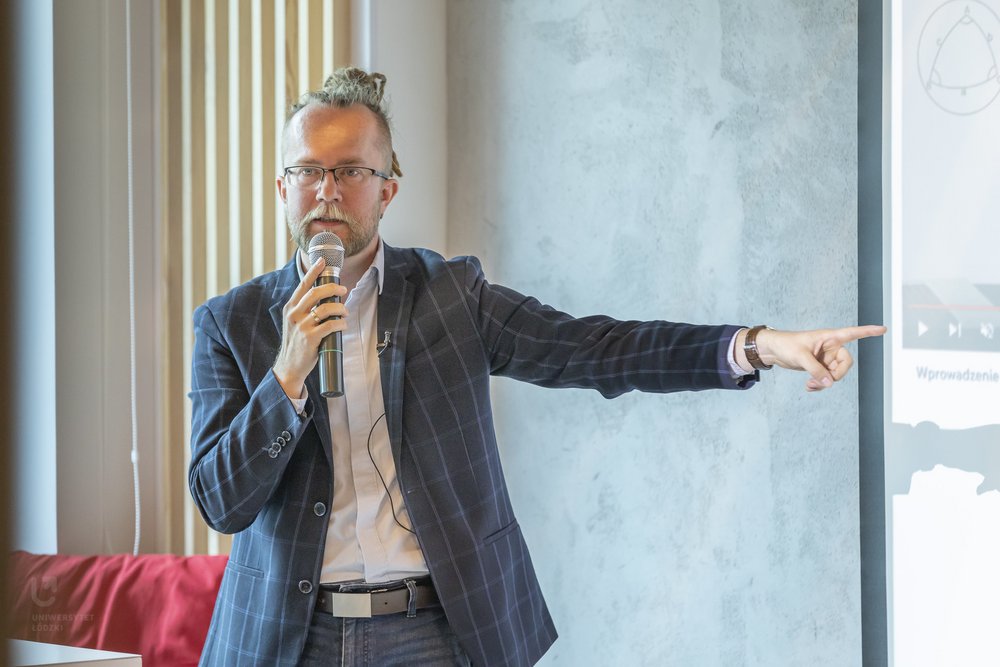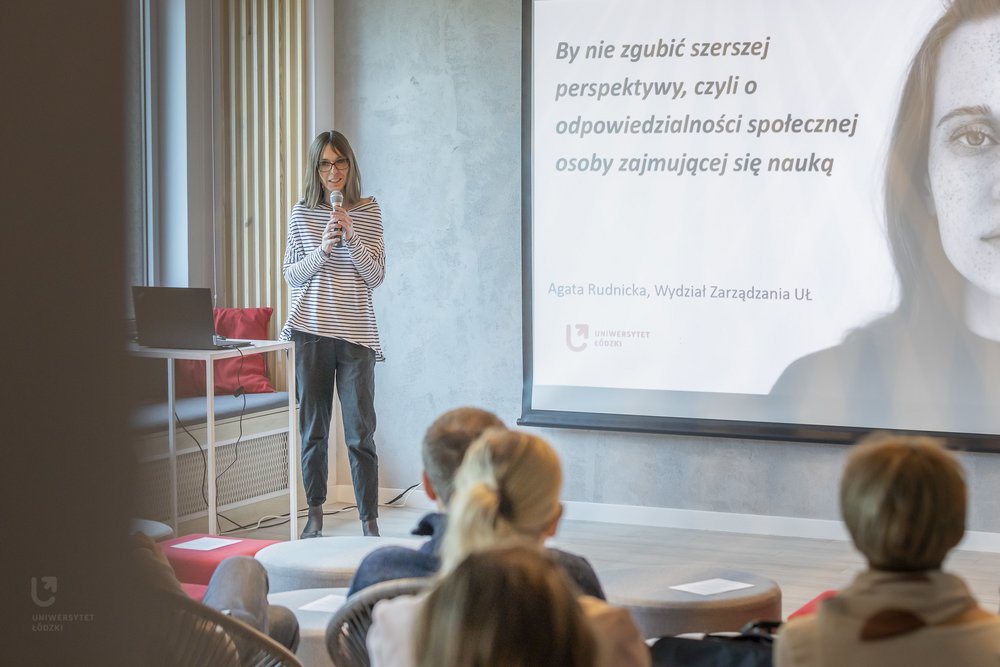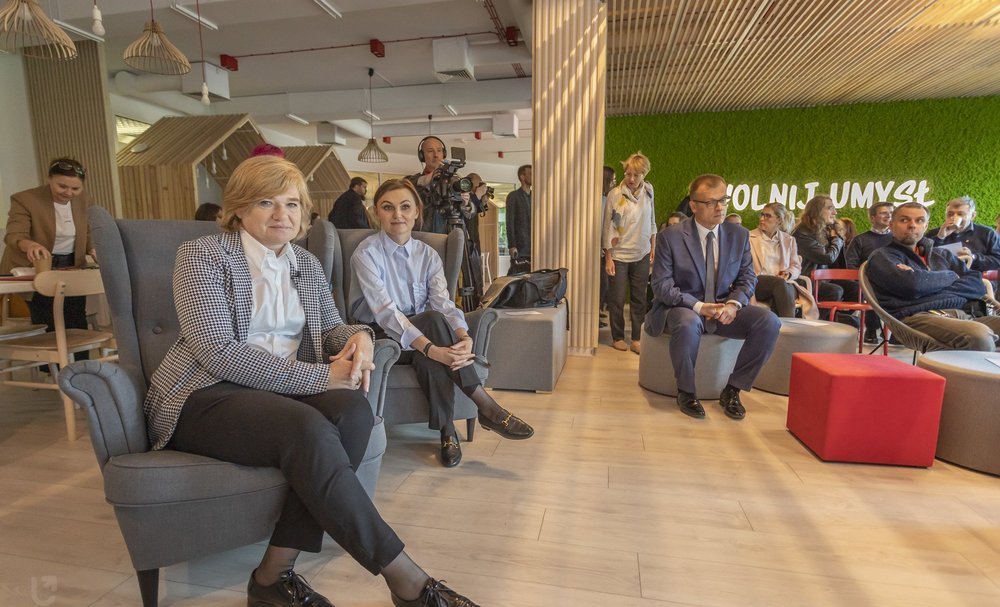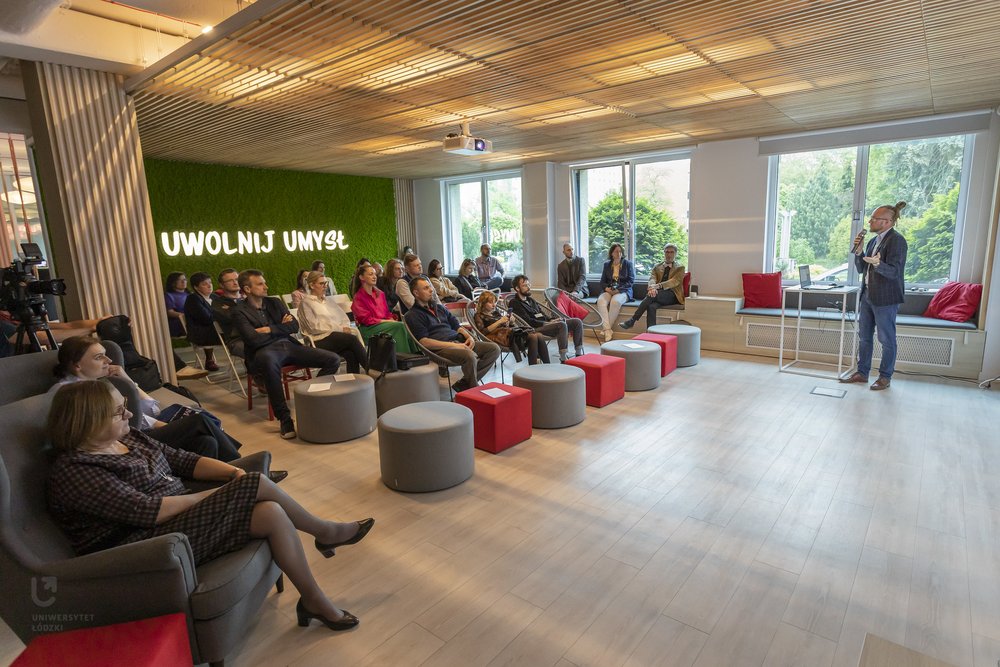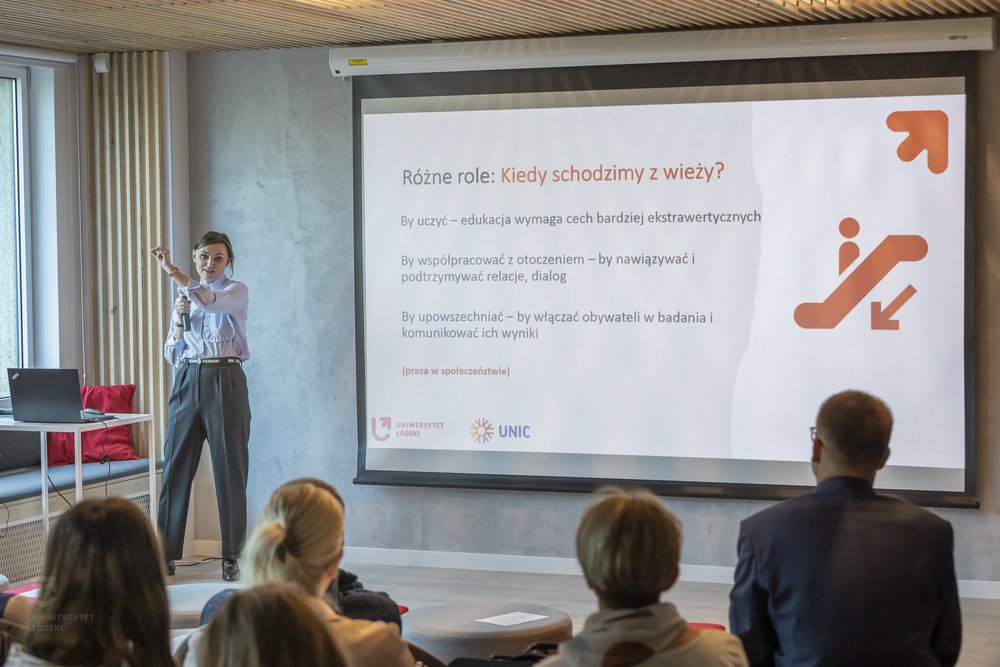Full photo report of the event
This was the second seminar organised by the University of Lodz with the support of the American Corner Lodz. Its aim is to support the academic community in the dissemination and popularisation of scientific achievements, and encourage dialogue with the university environment. The event was prepared by the employees of the Communications and PR Centre of the University of Lodz and the University of Lodz Library.
The room was full of representatives of science, students, administration of the University of Lodz, but also guests from other scientific and science-promoting institutions, such as EC1, the Polish Academy of Sciences, Medical University of Lodz, Lodz University of Technology.
The attendees were welcomed by Professor Elżbieta Żądzińska, Rector of the University of Lodz. Throughout the day, the event was actively attended by Dr hab. Agnieszka Kurczewska, Associate Professor, the University of Lodz Vice-Rector for External Relations.
Being responsible means taking actions based on a sense of connection and commitment to oneself and others. It is an active attitude towards social reality and a conscious response to what is happening around you.
– Dr hab. Agnieszka Kurczewska, Associate Professor,
The seminar consisted of subsequent speeches interspersed with questions from attendees. It was also an opportunity to hold a lively discussion and exchange experiences between representatives of various institutions.
Dr hab. Agnieszka Kurczewska, Associate Professor, who was the first speaker, reflected on the role of the academy in the modern world and the meaning and sense of academic work. Considerations included issues such as academic identity and individual and institutional research responsibility. What was particularly memorable to the listeners and other speakers was the phrase about a scientist going in and out of the proverbial '️ivory tower', isolated from society.
Dr Agata Rudnicka from the Faculty of Management at the University of Lodz focused on the individual responsibility of each person conducting research. During the meeting, she outlined the main themes related to the research process, the search for topics, the approach to discovering them and promoting them among the public.
The joint presentation was prepared by two female academics from the Faculty of Economics and Sociology at the University of Lodz – Dr Małgorzata Dzimińska and Dr Aneta Krzewińska, Associate Professor. They shared lessons learned from the CONCISE project, in which they were involved in the development of Europe-wide recommendations for science communication. They also presented the SCIENCE HUB initiative promoting the realisation of scientific implementation projects in close collaboration between students, staff and external partners.
Useful information for researchers was prepared by Bartłomiej Więckowski from Elsevier. During his speech, he analysed and presented the contribution of the University of Lodz to various SDG goals. Emerging proposals can be the next step in developing cooperation and building better visibility for the university on the international map of science centres.
A spectacular speech entitled "Naukowiec w świecie mediów" [Scientist in the world of media] was prepared by another external speaker – Dr Łukasz Lamża from the Copernicus Center for Interdisciplinary Studies of the Jagiellonian University, a philosopher, a science journalist and an author of books, among others, "Światy równoległe" (2020), "Połącz kropki" (2021) and "Trudno powiedzieć" (2022). He hosts the weekly science press review "Czytamy Naturę" (YouTube). The speaker asked some key questions: Is it worth fighting for high viewing figures? What benefit do I actually get out of it? What is the most enjoyable path and what is the most effective one? During the talk, Dr Lamża outlined 'road maps' of the land – 'signposts' for writers, podcast recorders and video content.
It's not worth recording for likes and subscriptions
– stated the science populariser.
The profile of the expert was outlined by Professor Eleonora Bielawska-Batorowicz, a psychologist from the Faculty of Educational Sciences at the University of Lodz. The audience learned what the role of the expert in the context of the task of popularising science is, who the public recognises as an expert, and if the expert's opinion plays a role in individual decisions. The speaker concluded with an open question about who will become the expert in the age of artificial intelligence development, who will we believe?
Instead of a punch line, we will ask three questions formulated by Professor Agnieszka Kurczewska to all the popularisers of science. The questions are:
- To what extent and at what stage do you incorporate an aspect of society into your academic work?
- Can elements of citizen science be applied to your research?
- Are you driven by responsibility in your academic choices?
We encourage you to participate in the next initiatives within the "Badaj, promuj, bądź" [Research, Promote, Be] series prepared by the University of Lodz!
Edit: Honorata Ogieniewska, Communications and PR Centre, University of Lodz
Photos: Maciej Andrzejewski, Communications and PR Centre, University of Lodz
